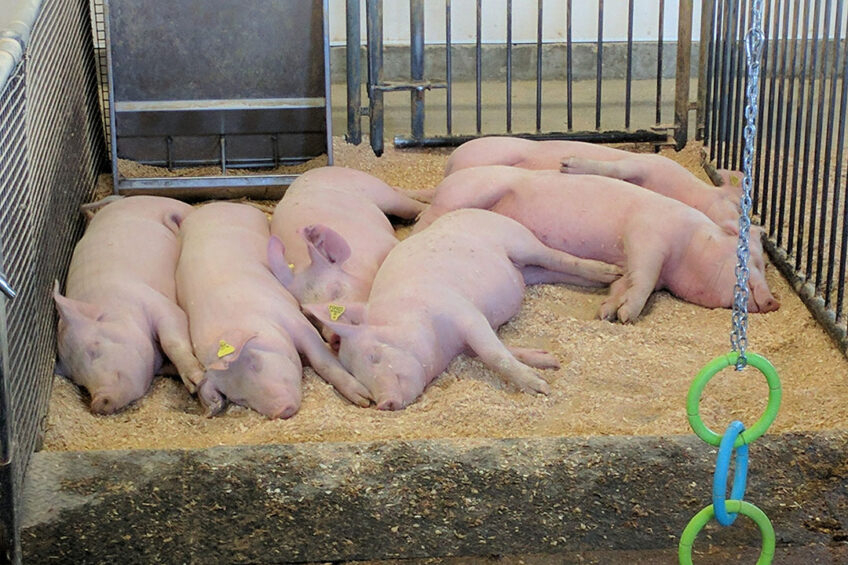May 16, 2025 | 04:49 GMT +7
May 16, 2025 | 04:49 GMT +7
Hotline: 0913.378.918
May 16, 2025 | 04:49 GMT +7
Hotline: 0913.378.918

Photo: Canva
This would enable a more accurate assessment of differences in housing, pig interactions, transport and other factors at various farms that all directly affect pig welfare.
This comes at the same time a new pig welfare initiative has just been started in the province next door, Manitoba, where most of Canada’s pigs are produced. The Winnipeg Humane Society has paid for billboards across the city (Manitoba’s largest urban centre) to highlight pig welfare concerns such as transport trailer temperatures and housing.
The Manitoba Pork Council responded by stating that almost all Manitoba pigs are now housed in groups, including about half of province’s sows. All Canadian pig producers must transition to larger gestation crates and group housing systems by mid-2029, as stipulated by the National Farm Animal Care Council’s Code of Practice for the Care and Handling of Pigs.
Research lead Dr Seokbum Ko at the University of Saskatchewan explained recently that he and his team have placed digital camera in a Saskatchewan processing plant that are capturing video of pig carcasses coming down the line after they have been scalded and hair removed.
Artificial intelligence (AI) software then captures images from this video of the sides and back of each carcass. The software is currently being trained to detect lesions on areas of the pig body particularly of interest to welfare, such as the tail, flank and shoulder. The software will then be trained to differentiate between types of injuries, for example those caused by bites.
“The end goal is that the models will detect the lesions on the pig carcasses, identify the lesion type and its severity and provide the lesion report for each pig,” said Dr Ko in a recent news report. “This information would then be collated to provide reports for the abattoir and each barn.”
Meanwhile in early September, representatives from Quebec-based DuBreton spoke at a meeting of the Global Coalition for Animal Welfare (GCAW) ‘Pig Welfare Working Group.’
GCAW, based in the UK, includes Maple Leaf Foods, IKEA, Nestle, Starbucks, Tesco, Tyson Foods and Unilever, with a membership total combined annual revenue of over US$ 590 billion.
2 DuBreton representatives spoke about how the company rears pigs without the use of farrowing crates and tail docking.
At the same time, UK supermarket chain Waitrose has taken further steps to ensure its continental meat supply is free of animal confinement by 2025. Waitrose only sells ‘outdoor-bred’ or free-range pork from British producers. Now, with a new long-term partnership with The Compleat Food Group of Italy in place, Waitrose will be sourcing over half its continental pork sales from pigs produced to higher welfare standards.
(PP)

(VAN) Fourth most important food crop in peril as Latin America and Caribbean suffer from slow-onset climate disaster.

(VAN) Shifting market dynamics and the noise around new legislation has propelled Trouw Nutrition’s research around early life nutrition in poultry. Today, it continues to be a key area of research.

(VAN) India is concerned about its food security and the livelihoods of its farmers if more US food imports are allowed.

(VAN) FAO's Director-General emphasises the need to work together to transform agrifood systems.

(VAN) Europe is facing its worst outbreak of foot-and-mouth since the start of the century.

(VAN) The central authorities, in early April, released a 10-year plan for rural vitalization.

(VAN) Viterra marked a significant milestone in its carbon measurement program in Argentina, called Ígaris, reaching 1 million soybean hectares measured.